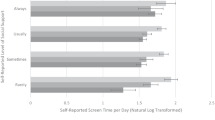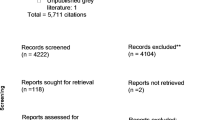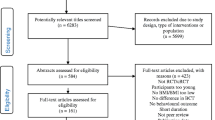Abstract
The mobile phone dependence of college students has gradually become a common and serious problem in society. Physical activity constitutes an important intervention to ameliorate this phenomenon. Previous studies have found that self-control can effectively reduce dependence on mobile phones. Therefore, it is necessary to consider whether physical activity can improve self-control and reduce college students’ mobile phone dependence. In total, 418 college students were selected by means of convenience sampling. The Physical Activity Rating Scale (PARS-3), the College Student Phone Dependency Questionnaire, and the College Student Self-Control Scale (SCS) were distributed electronically. The results show that 1) physical activity has a negative effect on college students’ mobile phone dependence, 2) physical activity plays a positive role in the self-control of college students and 3) self-control plays a mediating role in the effect of physical activity on mobile phone dependence. Physical activity is an effective intervention for decreasing an individual’s mobile phone dependence, and self-control acts as a mediator to reduce mobile phone use.

Similar content being viewed by others
References
Baumeister, R. F., Bratslavsky, E., Muraven, M., & Tice, D. M. (1998). Ego depletion: Is the active self a limited resource? Journal of Personality and Social Psychology, 74(5), 1252–1265.
Baumeister, R. F. (2002). Yielding to temptation: Self-control failure, impulsive purchasing, and consumer behavior. Journal of Consumer Research, 28(4), 670–676.
Baumeister, R. F., Gailliot, M., Dewall, C. N., & Oaten, M. (2006). Self-regulation and personality: How interventions increase regulatory success, and how depletion moderates the effects of traits on behavior. Journal of Personality, 74(6), 1773–1802.
Baumeister, R. F., & Tice, V. D. M. (2007). The strength model of self-control. Current Directions in Psychological Science, 16(6), 351–355.
Baumeister, R. F., & Vohs, K. D. (2016). Misguided effort with elusive implications. Perspectives on Psychological Science, A Journal of the Association for Psychological Science, 11(4), 574.
Berkman, E. T., Graham, A. M., & Fisher, P. A. (2012). Training self-control: a domain-general translational neuroscience approach. Child Development Perspectives, 6(4), 374–384.
Bianchi, A., & Phillips, J. G. (2005). Psychological predictors of problem mobile phone use. Cyberpsychology & Behavior, 8(1), 39–51.
Billieux, J. (2012). Problematic use of the mobile phone: A literature review and a pathways model. Current Psychiatry Reviews, 8, 299–307.
Chaddock, L., Erickson, K. I., Prakash, R. S., Kim, J. S., Voss, M. W., Vanpatter, M., Pontifex, M. B., Raine, L. B., Konkel, A., Hillman, C. H., Cohen, N. J., & Kramer, A. F. (2010). A neuroimaging investigation of the association between aerobic fitness, hippocampal amount, and memory performance in preadolescent children. Brain Research, 1358, 172–183.
Demirci, K., Akgönül, M., & Akpinar, A. (2015). Relationship of smartphone use severity with sleep quality, depression, and anxiety in university students. Journal of Behavioral Addictions, 4(2), 85–92.
De Ridder, D. T., Lensveltmulders, G., Finkenauer, C., Stok, F. M., & Baumeister, R. F. (2012). Taking stock of self-control: A meta-analysis of how trait self-control relates to a wide range of behaviors. Personality & Social Psychology Review an Official Journal of the Society for Personality & Social Psychology Inc, 16(1), 76.
Englert, C., & Rummel, J. (2016). I want to keep on exercising but I don’t: The negative impact of momentary lacks of self-control on exercise adherence. Psychology of Sport and Exercise, 26, 24–31.
Finne, E., Englert, C., & Jekauc, D. (2019). On the importance of self-control strength for regular physical activity. Psychology of Sport and Exercise, 43, 165–171.
Galla, B. M., & Duckworth, A. L. (2015). More than resisting temptation: Beneficial habits mediate the relationship between self-control and positive life outcomes. Journal of Personality and Social Psychology, 109(3), 508–525.
Gao, J., Sun, J., & Xiao, K. (2012). Influence of sport interference on university students’ network addiction. Journal of Shenyang Sport University, 31(4), 55–59.
Gerdtham, U. G., Wengström, E., & Östervall, L. W. (2019). Trait self-control, exercise and exercise ambition: Evidence from a healthy, adult population. Psychology, Health & Medicine, 4, 1–10.
Hagger, M. S. (2013). The multiple pathways by which self-control predicts behavior. Frontiers in Psychology, 4, 849.
Hayes, A. F., & Scharkow, M. (2013). The relative trustworthiness of inferential tests of the indirect effect in statistical mediation analysis: Does method really matter? Psychological Science, 24(10), 1918–1927.
Iacobucci, D. (2008). Mediation analysis. Thousand Oaks, CA: Sage.
Jiang, Z., & Zhao, X. (2016). Self-control and problematic mobile phone use in chinese college students: The mediating role of mobile phone use patterns. BMC Psychiatry, 16(1).
Jun, H. J., & Park, S. (2019). The effect of cross-level interaction between community factors and social capital among individuals on physical activity: Considering gender difference. International Journal of Environmental Research and Public Health, 16(3), 495.
Kamijo, K., Nishihira, Y., Higashiura, T., & Kuroiwa, K. (2007). The interactive effect of exercise intensity and task difficulty on human cognitive processing. International Journal of Psychophysiology, 65(2), 114–121.
Kinnunen, M. I., Suihko, J., Hankonen, N., Absetz, P., & Jallinoja, P. (2012). Self-control is associated with physical activity and fitness among young males. Behavioral Medicine, 38(3), 83–89.
Khang, H., Woo, H. J., & Kim, J. K. (2012). Self as an antecedent of mobile phone addiction. International Journal of Mobile Communications, 10(1), 65.
Lepp, A., Barkley, J. E., & Karpinski, A. C. (2014). The relationship between cell phone use, academic performance, anxiety, and satisfaction with life in college students. Computers in Human Behavior, 31, 343–350.
Li, Z. B., Liang, Y., & Wang, T. T. (2017). The impact of college students' mobile phone dependence and self-control on procrastination. Psychological Research, 10(2), 90–96.
Liang, D. Q. (1994). The stress level of college students and its relationship with physical activity. Chinese Journal of Mental Health, 1, 5–6.
Mei, S. L., Chai, J. X., Wang, S. B., Ng, C. H., Ungvari, G. S., & Xiang, Y. T. (2018). Mobile phone dependence, social support and impulsivity in chinese university students. International Journal of Environmental Research & Public Health, 15(3), 504–510.
Ministry of Industry and Information Technology of China. Telephone users in July 2019 by province. http://www.miit.gov.cn/n1146312/n1146904/n1648372/c7277606/content.html, 2019-9-12.
Muraven, M. (2010). Building self-control strength: Practicing self-control leads to improved self-control performance. Journal of Experimental Social Psychology, 46(2), 0–468.
Pituch, K. A., Whittaker, T. A., & Stapleton, L. M. (2005). A comparison of methods to test for mediation in multisite experiments. Multivariate Behavioral Research, 40(1), 1–23.
Preacher, K. J., & Hayes, A. F. (2008). Asymptotic and resampling strategies for assessing and comparing indirect effects in multiple mediator models. Behavior Research Methods, 40(3), 879–891.
Puetz, T. W., O’Connor, P. J., & Dishman, R. K. (2006). Effects of chronic exercise on feelings of energy and fatigue: A quantitative synthesis. Psychological Bulletin., 132(6), 866–876.
Qing Z. H., Cao J.P., Wu C.H., & Liu X.Q. (2019). Investigation on the status quo and influencing factors of college students' mobile phone addiction from the perspective of ecology. Modern Preventive Medicine (5), 865–869+874.
Roberts, J. A., & Pirog, S. F. (2013). A preliminary investigation of materialism and impulsiveness as predictors of technological addictions among young adults. Journal of Behavioral Addictions, 2(1), 56–62.
Sahin, S., Ozdemir, K., Unsal, A., & Temiz, N. (2013). Evaluation of mobile phone addiction level and sleep quality in university students. Pakistan Journal of Medical Sciences, 29, 913–918.
Sara, A. (2011). Mobile phone use and stress, sleep disturbances and symptoms of depression among young adults – a prospective cohort study. BMC Public Health, 11(66), 2–11.
Schöndube, A., Bertrams, A., Sudeck, G., & Fuchs, R. (2017). Self-control strength and physical activity: An ecological momentary assessment study. Psychology of Sport and Exercise, 29, 19–26.
Tan, S. H., & Guo, Y. Y. (2008). Revision of the university self-control scale. Chinese Journal of Clinical Psychology, 16(5), 468–470.
Tangney, J. P., Baumeister, R. F., & Boone, A. L. (2004). High self-control predicts good adjustment, less pathology, better grades, and interpersonal success. Journal of Personality, 72(2), 271–324.
Thomée, S., Härenstam, A., & Hagberg, M. (2011). Mobile phone use and stress, sleep disturbances, and symptoms of depression among young adults – a prospective cohort study. BMC Public Health, 11, 185–188.
Walsh, S. P., White, K. M., Cox, S., & Young, R. M. (2011). Keeping in constant touch: The predictors of young Australians’ mobile phone involvement. Computers in Human Behavior, 27(1), 333–342.
Wang Z. X. (2013). Research on the relationship between college students' mobile phone dependence and impulsiveness. (Doctoral dissertation, Suzhou University).
Warburton, D. E. R., & Bredin, S. S. D. (2017). Health benefits of physical activity: A systematic review of current systematic reviews. Current Opinion in Cardiology, 32(5), 541–556.
Wu, M. L. (2010). Structural equation model – the operation and application of AMOS. CQ: Chongqing University Press.
Yang, Z., Asbury, K., & Griffiths, M. D. (2019). An exploration of problematic smartphone use among Chinese University students: Associations with academic anxiety, academic procrastination, self-regulation and subjective wellbeing. International Journal of Meantal Health and Addiction, 7, 596–614.
Yen, C. F., Tang, T. C., Yen, J. Y., Lin, H. C., Huang, C. F., Liu, S. C., & Ko, C. H. (2009). Symptoms of problematic cellular phone use, functional impairment and its association with depression among adolescents in southern Taiwan. Journal of Adolescence, 32, 863–873.
Zhang, Y., & Zhang, L. W. (2017). Progress in the classification of athletes' self-control training. Chinese Journal of Sports Medicine, 10, 72–76.
Zhao, X., Lynch, J. G., & Chen, Q. (2010). Reconsidering baron and kenny: Myths and truths about mediation analysis. Journal of Consumer Research, 37(2), 197–206.
Zong, H. L. (2019). Research on the relationship between college students' sports spiritual culture needs and exercise behavior. Zhejiang Sports Science, 41(5), 98–104.
Zou, Z., Liu, Y., Xie, J., & Huang, X. (2016). Aerobic exercise as a potential way to improve self-control after ego-depletion in healthy female college students. Frontiers in Psychology, 7, 501–509.
Funding
This research was supported by the Fundamental Research Funds for the Central Universities (Grant No. 2019PT016).
Author information
Authors and Affiliations
Contributions
All authors designed the study. Wang Yaxin conducted data collection. Zhong Weitan performed data analysis and carried out the bulk of the literature review and manuscript writing. Zhang Guoli participated in checking methods, results and guiding Zhong Weitan during the data analysis. Zhang Guoli played an editorial role when it came to writing up the research study. All authors read and approved the final manuscript.
Corresponding author
Ethics declarations
Conflict of Interest
The authors declare that they have no conflict of interest.
Ethics
This study has been approved by the Ethics Committee of the School of Psychology at the Beijing Sport University. All participants agreed to give their information for scientific research and to provide anonymous responses. The research met the required ethical standards and was approved by the research team’s university ethics committee.
Additional information
Publisher’s Note
Springer Nature remains neutral with regard to jurisdictional claims in published maps and institutional affiliations.
Rights and permissions
About this article
Cite this article
Zhong, W., Wang, Y. & Zhang, G. The Impact of Physical Activity on College Students’ Mobile Phone Dependence: the Mediating Role of Self-Control. Int J Ment Health Addiction 19, 2144–2159 (2021). https://doi.org/10.1007/s11469-020-00308-x
Published:
Issue Date:
DOI: https://doi.org/10.1007/s11469-020-00308-x




